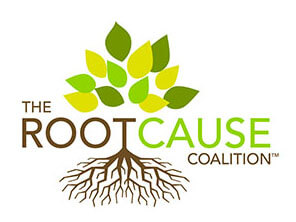The Root Cause Coalition Releases Year Long Study Assessing Social Drivers of Health
The Root Cause Coalition Releases Year Long Study Assessing Social Drivers of Health
January 2024 - Social Drivers of Health
Contact: Alexandra Lewin-Zwerdling FOR IMMEDIATE RELEASE
Senior Advisor, Research and Communications
alexandra@rootcausecoalition.org
202.769.9015
(Washington D.C.) — Over the past year, The Root Cause Coalition sought to discern how people understand, experience and prioritize a variety of social drivers of health, focusing on chronic health conditions, food and nutrition insecurity and extreme weather for the qualitative portion of the study.
The two study components—a quantitative study taking place in four waves throughout the year, for a total of 1,000 nationally representative adults 18 years of age and older, coupled with a qualitative study of individual interviews and focus groups—tells the story of individuals and communities across the country experiencing social drivers of health in different ways and at different levels. The qualitative portion of the report includes Medicare/Medicaid participants, primary care providers and individuals working in social service organizations.
As Barbara Petee, President of The Root Cause Coalition, notes, “Often times we rely on just data to inform our work; so the ability to enhance this research with critical stories and experiences—through quotes and group discussion—helps us better understand and interpret the data. The gaps in care are clear and as a Coalition we can use this report to understand why these gaps exist, pursue and share communication strategies to reach individuals that need services and advocate for policies that can help achieve health equity across the country.”
This research examined issues that are of utmost public health concern, including experiences with social drivers, understanding where to go for care, whose responsibility it is to provide that care, desired policy priorities and communications strategies to inform individuals and communities on how to receive care. The report also examines in depth correlations between demographics such as race, gender, education, health care status and income.
Food and housing security are familiar topics that people recognize as impacting their communities. But with perceived well-established programs addressing food insecurity in many of the communities, housing security edged out food security as a top priority for policy makers. Digital equity was lowest on the list as public health concerns, however there was a strong sentiment that access to high-speed internet greatly impacts the overall health and well-being of people in their community. Access to affordable housing, enough food to eat and high-quality health care are the top-rated priorities that respondents flagged for policy makers.
Access to high-quality health care was a top priority, with many respondents citing high rates of chronic health conditions in their communities. Access is a geographic challenge for rural locations. However, primary care clinicians noted that when access to health care services is available, there may be other barriers for the patient’s willingness to engage, including some populations’ inherent mistrust in utilizing health care services and treatments.
People are not always sure where to go for help, regardless of the issue being explored, and some ‘go-to’ organizations were perceived to have less accountability. In particular, faith-based organizations are not perceived as having responsibility to help with the effects of extreme weather as much as other groups. However, churches are often sites that were referenced as places people seek refuge from extreme weather.
For the full report, including the qualitative study results and demographic details, see here.
About The Root Cause Coalition
The Root Cause Coalition was founded in 2015, and is a non-profit member-driven organization comprised of more than 90 leading health systems, hospital associations, foundations, businesses, national and community nonprofits, health insurers, academic institutions, local governments, and policy centers. Our common goal is to achieve health equity for every American.
